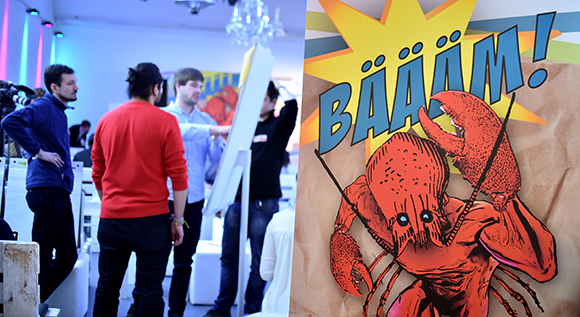2018 Energy Efficiency Hack: Hacking solutions for the energy transition
The word hacker has become associated with someone who breaks into a computer system. Originally however, the word was used to describe tech-savvy persons who use their technical knowledge to find creative solutions. This is what the Energy Efficiency Hack, which will take place in Berlin this February, is all about.
 © Britta Pedersen
© Britta Pedersen
Get ready for the second edition of the Energy Efficiency Hack, which will take place in Berlin from 18 to 19 February 2018! The hackathon – a term created from the words ‘hack’ and ‘marathon’ – will bring together coders, engineers, designers, psychologists, sociologists and entrepreneurs who will work in teams to find solutions to particularly important energy efficiency challenges.
Three different problems, one common goal: reducing energy consumption
The problems that this year’s participants will be asked to work on are:
1. How can we use the internet of things to keep food from going bad in our supermarkets, i.e. reduce the amount of food that reaches its expiration date and therefore has to be thrown away? And how can we, at the same time, reduce the amount of energy required for keeping food refrigerated in our supermarkets?
2. How can we design a smart and customer-friendly tool that helps consumers choose the right type of insulation for building or renovating their homes and therefore cut their energy bills?
3. How can we improve building automation systems to make them particularly easy to use – for example when it comes to controlling windows, blinds, heating, ventilation and lighting systems? How can we market smart building automation products more successfully and ensure that as many consumers as possible opt for this way of reducing their energy consumption?
Each team will decide which of these three problems they want to work on, and will be given ten hours – on the second day of the event – to develop solutions. They will then be asked to present their solution to a panel consisting of jurors from across all sectors. The winners will be honoured directly at the event. They will be given non-cash prizes and the opportunity to continue working on their idea with one of the companies represented at the event.
Policymakers and businesses join forces to improve energy efficiency
This year’s Energy Efficiency Hack will once again be hosted by the German Energy Efficiency Initiative (DENEFF). DENEFF consists of more than 150 companies that are leading in the field of energy efficiency and that have all set themselves the objective of improving energy efficiency.
Better energy efficiency is not only key in order to bring about the energy transition, it is also important for helping businesses cut their energy bills so they can continue to stand the test of global competition. An ever larger number of start-up are also picking up on the idea of improving energy efficiency. This will help boost competition and at the same time create new jobs.
Federal Minister for Economic Affairs and Energy, Brigitte Zypries, who serves as the patron for the event, said: “Our goal is for Germany to maintain its position as one of the leading innovators, not least in the energy sector. If we want to achieve this goal, we need to try new things and venture into uncharted territory – which is the idea behind the Energy Efficiency Hack. We are therefore delighted that, following last year’s first successful Hack, DENEFF has decided to host a second edition of this event.”
Sign up now!
The 2018 Energy Efficiency Hack will take place in Betahaus – a co-working space in Berlin’s Kreuzberg district. Applications need to be submitted by 9 February 2018. If you are a student, start-up or industry representative working in the field of energy efficiency and want to sign up for the event, please click here. To give hackers from all over the world the opportunity to take part, the event will be held in English.

